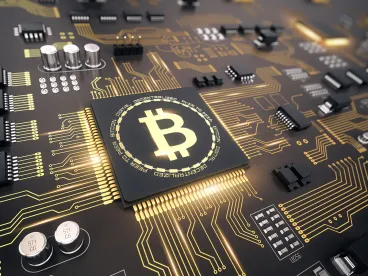Michael Hsu, the acting chief of the Office of the Comptroller of the Currency, recently addressed his remarks to the Blockchain Association drawing similarities between the current growth of cryptocurrencies and decentralized finance (DeFi) and the credit default swaps (CDS) of the early-2000s. In his remarks, Hsu emphasized that:
-
Cryptocurrencies and DeFi may be following the same trajectory of toxic credit instruments that led to the 2008 crisis. Hsu draws parallels from Gillian Tett’s book “Fool’s Gold” where the “innovation” used to justify the revolution in credit default swaps (CDS) was the fool’s gold that led to a global economic meltdown.
-
Cryptocurrency advocates often cite their goal of enabling global financial inclusion, particularly among minority investors. While applauding this goal in concept, Hsu expressed doubt that the current crypto/DeFi trajectory will actually achieve this goal without being rooted in purpose.
-
“Speaking up” and raising difficult and inconvenient questions will lead to long-term sustained innovation.
-
It is important to “follow the money” questioning how money is being made and lost in crypto/DeFi, and that the ability to explain profits and losses is essential for responsible industry growth.
-
The U.S. blockchain and cryptocurrency industry ought to apply the lessons from the 2008 financial crisis. He stressed that applying these lessons will lead to true blockchain innovation and mitigate the risks cloaked in the jargon of fool’s gold.
Putting It Into Practice: We expect the OCC along with the SEC will pursue stricter oversight of crypto/defi and propose tougher rules that regulate crypto-currencies like securities. For example, a group of senior staff at the Fed, OCC and FDIC have been working together in a “crypto policy sprint’ focused on crypto-regulation and its relation to the banking industry. Hsu stated the purpose of the group is to “agree on definitions, use cases, risks, and gaps, and to discuss policy options related to digital assets.” Also, SEC Chair Gary Gensler testified before the Senate recently that the agency was “examining cryptocurrencies in a number of areas: the offer and sale of crypto tokens; crypto trading and lending platforms; stable value coins; investment vehicles providing exposure to crypto assets or crypto derivatives, and the custody of crypto assets.” Wherever the pressure points come from, regulators expect digital asset innovators to prepare to invest in compliance and other resources if they are to become part of the legitimate financial services ecosystem.





 />i
/>i

